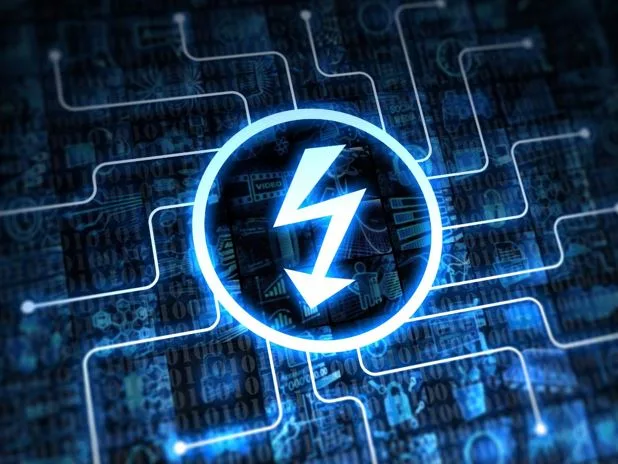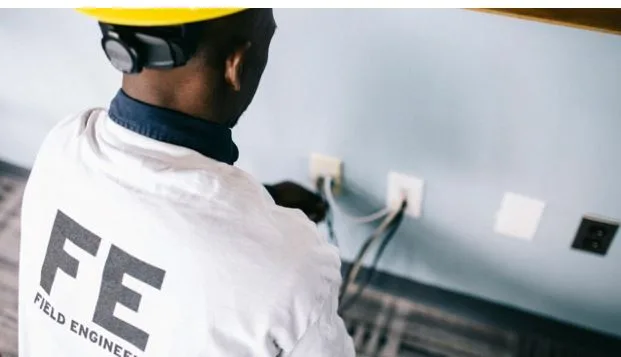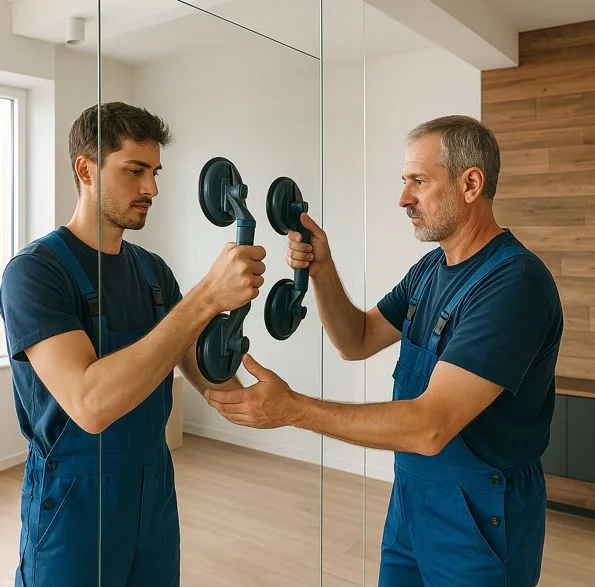Top 7 SPD Manufacturers
A few years ago, I thought I had found the perfect SPD supplier.
But once the shipment arrived half the units failed our QC tests. The delay almost stalled a telecom project we were working on.
Since then, I’ve learned the hard way: not all surge protection device manufacturers live up to their claims. Some look great on paper but fall short when it matters like real-world compatibility, product traceability, or support for OEM orders.
I’ve worked closely with panel builders, contractors, and OEM brands. I know what questions get real answers and what signals a red flag. Along the way, I’ve also come across rising players like Radin from China, who’ve built a reputation for reliable OEM-friendly SPDs without the big-brand markup.
In this article, I’ll walk you through 7 SPD manufacturers that are actually worth your time. You’ll learn what they make, how they operate, and who they’re best suited for.
So let’s get started!
1. Phoenix Contact
Phoenix Contact has been building electrical and automation products for over 100 years. They’re based in Germany and still run as a family-owned company, which says a lot about their long-term focus. That kind of stability is something I’ve always respected when choosing suppliers.
They’ve grown into a global name with over 20,000 employees and a presence in 100+ countries. If you work in power systems, control panels, or industrial automation, you’ve likely come across their products more than once.
Core Product Offerings
- Surge Protection Devices (SPDs): Phoenix Contact offers Type 1, 2, and 3 SPDs for AC power, DC systems, and data lines. Many models include visual status windows and pluggable cartridges.
- Terminal Blocks: A wide range of DIN-rail mounted connection blocks, including push-in and screw clamp styles.
- Industrial Power Supplies: Reliable units designed for control cabinets and outdoor systems.
- Signal Conditioners: Used to convert and isolate signals in factories or energy systems.
Manufacturing Capabilities & Infrastructure
I’ve toured one of their production facilities before and it was clear they take precision seriously. Most of their parts are built in-house, with automation used across the line. That makes a difference when you’re sourcing high-volume parts for long-term projects.
They operate major factories in Germany, the US, and China. With automated testing and clean assembly floors, it’s not hard to see why they’ve built such a strong reputation. Their OEM and private label programs are handled regionally, but are best suited for established buyers.
Certifications & Compliance
- IEC 61643-11: Covers international standards for surge protection design and testing.
- UL 1449: Meets North American SPD safety rules, which is critical for U.S.-based installations.
- ISO 9001: Shows their process and product quality is maintained across global facilities.
- ISO 14001: Reflects their environmental responsibility during manufacturing and packaging.
Ideal Customer Fit
- OEM Brands: Best for companies needing certified SPDs at volume with solid technical backing.
- EPC and Utility Contractors: Works well for those involved in large-scale builds or utility-connected systems.
- Automation Integrators: A strong option if you’re building smart systems and want signal and surge protection from the same vendor.
Final Takeaway
Phoenix Contact is a solid pick if you care about long-term performance and certified gear. They offer a wide mix of SPDs and related products that are built for real industrial use, not just catalog specs. I’ve worked with their components in everything from solar installs to factory retrofits.
However, smaller buyers or startups looking for flexible MOQs or easy OEM setup might find their system a bit formal. Still, if you’re building something that has to work, they’re one of the safer choices out there.
2. DEHN
DEHN is a German company that’s been around since 1910. They started as a small electrical shop and slowly became one of the most respected names in lightning and surge protection. That kind of history doesn’t come from luck. It comes from focus.
I’ve worked with a few contractors who swear by DEHN for critical jobs—especially when safety and certifications matter most. From what I’ve seen, their products don’t just look good on paper. They hold up in the field too.
Core Product Offerings
- Surge Protection Devices (SPDs): DEHN manufactures Type 1, 2, and 3 SPDs for low-voltage systems. They also offer lightning current arresters for direct strike zones.
- Lightning Protection Systems: Full kits and accessories for building-level lightning protection, including air terminals and down conductors.
- Earthing and Bonding: Equipment to ground electrical systems safely. Used heavily in substations and utility projects.
- Safety Equipment: Insulated tools, voltage detectors, and arc flash protection gear for electricians working near high-energy systems.
Manufacturing Capabilities & Infrastructure
DEHN builds and tests most of their products in Germany. They run large-scale manufacturing with full in-house control, which helps keep their quality consistent. Their Neumarkt campus includes production, engineering, and training under one roof.
I haven’t visited their site personally, but I’ve seen the results. Their components come clean, packed right, and installation-ready. For OEM programs, they typically work with established partners who already have technical teams and high-volume needs.
Certifications & Compliance
- IEC 61643-11: DEHN’s SPDs meet this global standard for surge protection performance and testing.
- UL 1449: Some of their SPD lines are certified for North American markets under UL’s requirements.
- ISO 9001: Their quality system is approved for consistent manufacturing processes and ongoing improvement.
- ISO 14001: Shows they manage energy use, material waste, and environmental impact at their factories.
Ideal Customer Fit
- Power Utilities and EPCs: DEHN is a solid fit for projects that demand high safety and compliance documentation.
- Data Center and Telecom Firms: Their modular SPDs and grounding systems help protect sensitive gear from voltage spikes.
- OEM and White-Label Brands: Best for those who already buy in bulk and want a supplier with global testing credentials.
Final Takeaway
DEHN is one of those manufacturers you turn to when the job has no room for error. Their experience in surge and lightning protection shows in the details: rugged housing, high-quality terminals, and clear labeling.
However, if you’re looking for casual customization or low order quantities, DEHN might not be the easiest to work with. They’re built for serious buyers who know what they need and want it backed by over a century of expertise.
3. Radin
Radin is based in Yueqing, China a place known for electrical manufacturing. They’ve been building low-voltage gear and automation parts for almost 20 years. What started as a small operation has grown into a trusted name, especially for OEM and industrial buyers.
I’ve talked to several distributors who source from Radin. The feedback is usually the same: stable quality, good packaging, and strong after-sales support. They may not be the flashiest brand, but they get the job done and that matters more in real projects.
Core Product Offerings
- Surge Protection Devices (SPDs): Offers Type 1, Type 2, Type 3, and DC-rated SPDs. Designed for buildings, solar systems, and telecom rooms.
- Automatic Transfer Switches (ATS): Solenoid and motorized models for switching between grid and backup power.
- Circuit Breakers: Includes molded case and air circuit breakers for load protection.
- Relays and Sensors: Covers everything from inductive sensors to solid-state relays and high-voltage DC relays.
- Motor Starters and Contactors: For controlling motors in automation panels and heavy machinery.
Manufacturing Capabilities & Infrastructure
Radin owns two production sites in the Yueqing Economic Development Zone. Their factory handles molding, assembly, testing, and packing in one flow. I haven’t visited personally, but I’ve seen samples and catalogs the products are cleanly built and the terminals are tight and durable.
They also run an in-house lab with over $1 million in test equipment. This helps them meet international standards without waiting on third-party labs. It’s a big plus if you’re dealing with strict project specs or compliance audits. OEM, ODM, and SKD programs are supported, and they even do branding and packaging on request.
Certifications & Compliance
- IEC 61643-11: Used across their SPD lines for surge protection performance.
- CE Certification: Marks their products safe and compliant for European buyers.
- ISO 9001: Verifies consistent manufacturing quality and management systems.
- TÜV Certification: Applies to selected ATS and circuit breakers, giving them stronger appeal in export markets.
Ideal Customer Fit
- OEM and ODM Buyers: If you want private label gear with flexibility in design and branding, Radin is ready for it.
- Distributors Seeking Alternatives to Big Brands: Radin offers similar specs to ABB or Schneider, but at 40–60% of the price.
- EPC and Panel Builders: You can get everything from SPDs to sensors from one handy source for reducing your supplier list.
Final Takeaway
Radin is a practical choice for small to mid-size buyers who want solid electrical gear without the big-brand markup. Their wide product range makes it easy to bundle orders, and they’re open to custom specs, OEM logos, and even project-based adjustments.
However, they’re not as well-known globally, which means you might need to do more explaining when presenting their parts to clients. But if you’re after value, stable lead times, and technical support that actually listens Radin’s worth a serious look.
4. Schneider Electric
I still remember the first time I saw Schneider gear on-site it was during a retrofit job in an old office tower. The panel had seen better days, but the Schneider SPD unit inside looked untouched. That left an impression on me.
Since then, I’ve come across their products in data rooms, fire systems, and switchboards. The design feels solid, and you can tell it’s built for long-term use. Their support team isn’t always the fastest, but their documentation is clear and deep enough that you can usually figure things out yourself.
Core Product Offerings
- Surge Protection Devices (SPDs): Includes residential, commercial, and industrial SPDs under their SurgeLogic and Surgelogic Plus lines. Offers plug-in and panel-mount designs.
- Circuit Protection Devices: MCCBs, ACBs, and miniature breakers for low-voltage systems. Often used in switchboards and control panels.
- Automatic Transfer Switches (ATS): Used for switching between power sources in backup systems. Comes in both enclosed and open designs.
- Building Automation and Energy Management: Systems that monitor energy use and automate HVAC, lighting, and more. Great for smart buildings.
- Motor Control Products: Soft starters, contactors, and overload relays for heavy-duty applications.
Manufacturing Capabilities & Infrastructure
Schneider runs dozens of factories around the world. They build most of their critical components in-house. Their production is highly automated, and they use smart tracking to manage inventory, quality checks, and shipping.
One thing I like about Schneider is their digital ecosystem. You can register your equipment, track service records, and even get remote support. That’s helpful when managing large projects or when you’re dealing with multiple sites across different locations.
Certifications & Compliance
- IEC 61643-11: Used across their SPD products to meet international surge protection standards.
- UL 1449: Their Surgelogic series is tested under UL’s rules for the U.S. and Canada.
- ISO 9001: Covers consistent quality management and manufacturing control.
- RoHS and REACH: Shows their commitment to environmental safety and restricted chemical use in product materials.
Ideal Customer Fit
- EPC Contractors and Utilities: If you’re bidding on large infrastructure projects, Schneider gives you compliance, documentation, and technical backup.
- OEM and Industrial Panel Builders: Great for companies building smart panels or export-grade systems with strict specs.
- Energy and Data Center Integrators: Their SPDs pair well with monitoring systems and allow remote diagnostics, which is useful in high-risk power environments.
Final Takeaway
Schneider Electric is a go-to brand for serious buyers who need global approvals and a full product ecosystem. Their SPDs are reliable, and their technical depth runs deep across everything they make. I’ve used their gear in tight-deadline jobs, and it always showed up ready.
However, pricing is on the higher side, and customization often requires longer lead times. But if you’re working in regulated industries or supplying high-end projects, Schneider helps you tick every box with confidence.
5. Eaton
Eaton has been around for more than 100 years. They started in the U.S. and have grown into one of the largest power management companies in the world. They work in everything from low-voltage protection to aerospace and large utility systems.
What I personally like about Eaton is their focus on safety and system design. I once worked on a telecom project where Eaton SPDs were used. We didn’t have a single surge-related failure for over three years. That kind of reliability sticks with you.
Core Product Offerings
- Surge Protection Devices (SPDs): Eaton offers panel-mount, branch-level, and plug-in SPDs under their SP2 and SPD Series. Products are tested for lightning-class and industrial surge levels.
- Circuit Breakers: MCCBs, miniature breakers, and high-interrupt capacity devices for commercial and industrial systems.
- Automatic Transfer Switches (ATS): Open and enclosed types for switching between grid and backup power. Some models come with digital controllers.
- Metering and Monitoring: Eaton’s monitoring units help track energy flow, detect faults, and manage power usage in real time.
- Motor Control: Includes soft starters, contactors, and overload protection for heavy machinery.
Manufacturing Capabilities & Infrastructure
Eaton runs multiple manufacturing plants across the U.S., Mexico, China, and Europe. Most of their SPDs for the U.S. market are built domestically. That’s helped avoid the delays that sometimes come with global shipping.
They use automated assembly lines and internal testing labs. I’ve never had an issue with batch quality from them. Each unit comes with clear markings, and the enclosures feel durable right out of the box. If you’re working on compliance-heavy projects, their labeling and traceability systems make documentation easy.
Certifications & Compliance
- UL 1449: Eaton SPDs are tested under this U.S. surge protection standard for both Type 1 and Type 2 devices.
- IEC 61643-11: Used for some international product lines depending on the application.
- ISO 9001: Their global facilities are certified for consistent quality control and process management.
- RoHS Compliance: Their newer product lines avoid restricted materials, which helps in projects needing green certifications.
Ideal Customer Fit
- Infrastructure Contractors and Utilities: Eaton works well when your project requires long-term performance with local tech support.
- Industrial Panel Builders: Their SPDs and breakers pair well with Eaton switchboards and metering gear.
- OEM and Energy Projects: Good for projects that need scalable surge protection and U.S.-based certifications for public works.
Final Takeaway
Eaton gives you the kind of performance you don’t have to babysit. Once it’s installed, it just works. Their SPDs are built tough, and they’ve proven reliable in high-load environments like telecom hubs and HVAC systems.
However, if you’re looking for flexible private labeling or low-price bulk buys, Eaton might not be the first place to start. But for serious projects where quality, compliance, and long-term support matter, Eaton stays near the top of the list.
6. OBO Bettermann
OBO Bettermann is a family-run business that started in Germany in the early 1900s. Today, it’s grown into a global supplier of electrical infrastructure systems. They’re best known for grounding, lightning protection, and surge protection products.
I came across their brand when working on a tunnel lighting project. The contractor swore by their surge units. I didn’t know much about them back then, but I remember how solid and well-built the enclosures felt. Since then, I’ve seen their name pop up more in infrastructure and public sector jobs.
Core Product Offerings
- Surge Protection Devices (SPDs): Offers a full range of Type 1, 2, and 3 SPDs. Units are modular, DIN-rail mounted, and built for high surge energy applications.
- Lightning Protection Systems: Complete kits for external lightning arresting, including air terminals and grounding systems.
- Cable Management: OBO manufactures trunking, conduits, cable trays, and fittings for industrial and commercial installs.
- Fire Protection Systems: Includes fire-rated cable supports and feed-throughs for emergency power systems.
- Earthing Systems: Components for grounding electrical installations, often paired with their SPD and lightning kits.
Manufacturing Capabilities & Infrastructure
OBO runs several production sites in Europe, with their main campus in Germany. From what I’ve seen, their gear is heavily tested and built to hold up in harsh environments. That’s probably why you’ll see them used in tunnels, highways, and airports.
One thing that impressed me was how well their systems are organized. You can tell they put thought into every connection and mount point. They also have strong support in Europe, with good regional stock availability and well-documented installation guides.
Certifications & Compliance
- IEC 61643-11: Their SPD lines meet this global surge protection standard.
- EN 62305: Applies to lightning protection systems and structural grounding designs.
- ISO 9001: Shows their focus on quality production and traceability across facilities.
- DIN and VDE Compliance: Their German certifications support public works and infrastructure projects.
Ideal Customer Fit
- Public Infrastructure and Transit Projects: Their SPDs and lightning systems are built for outdoor and exposed environments.
- Panel Builders and Electrical Contractors: OBO offers a wide selection of parts that fit neatly into industrial cabinets.
- Telecom and Data Network Integrators: Their gear protects low-voltage signal lines, not just power circuits.
Final Takeaway
OBO Bettermann may not have the biggest name globally, but they’ve carved out a strong place in the surge and lightning protection space. Their products feel engineered with care especially for environments where things can’t go wrong.
However, if you’re outside of Europe, it might take some time to get used to their part codes and sourcing options. But if your project involves critical infrastructure, OBO is a brand that deserves a closer look.
7. Legrand
Legrand is based in France and has been in the electrical business for over a century. They’ve built a reputation on stylish wiring devices and smart building tech. But they also make strong electrical protection gear—including SPDs. They now operate in more than 90 countries.
I used to think of Legrand mostly for switches and sockets. But after working on a hotel renovation that used their surge units and cable trays, I started to see their broader strengths. Their SPD units were compact, cleanly labeled, and easy to install. That made a big difference during a tight installation schedule.
Core Product Offerings
- Surge Protection Devices (SPDs): Offers Type 1 and Type 2 devices, mainly for residential and commercial use. Some are integrated directly into consumer panels.
- Wiring Devices: Known globally for high-end switches, outlets, and socket systems.
- Cable Management: Includes trunking, raceways, and underfloor solutions for commercial buildings.
- Smart Building Systems: Automation tools for lighting, HVAC, and energy monitoring, often used in modern hotels and offices.
- Electrical Enclosures and Panels: Modular cabinets for LV installations, often combined with their protection devices.
Manufacturing Capabilities & Infrastructure
Legrand owns factories across Europe, North America, and Asia. They handle most of their production in-house, especially for core product lines. That helps them keep quality steady while adapting their gear for different regional standards.
I haven’t worked directly with their factory teams, but I’ve seen how consistent their product packaging and design language are. From SPDs to switches, everything feels unified. That can make your cabinet or wall layout look and function better, especially in places like schools, offices, or hotels.
Certifications & Compliance
- IEC 61643-11: Covers most of their SPD range across global markets.
- UL 1449: Applies to U.S. models, including surge devices for panelboards and modular systems.
- ISO 9001: Recognized across their global sites, confirming a standard process for quality and testing.
- RoHS and REACH: Compliant with European environmental and chemical safety standards.
Ideal Customer Fit
- Commercial Building Contractors: Their compact SPDs and automation systems are ideal for hotels, offices, and malls.
- Panel Builders: Good for builders who want modern design and easy integration with other Legrand devices.
- Small OEMs and Distributors: Offers global appeal, simple wiring, and strong support materials for non-industrial users.
Final Takeaway
Legrand is a smart choice when you care about both form and function. Their SPDs are built clean and compact, and they blend well with other panel gear. In my experience, their systems shine in building automation and commercial setups, especially where visual layout matters.
However, if you’re focused on heavy-duty or industrial-grade surge protection, their range might feel a bit limited. But for clean installs and smart integrations, Legrand brings both style and solid engineering to the table.
Conclusion
That shipment with all the failed SPDs? It nearly brought one of our key projects to a stop. And the supplier just disappeared when we needed answers.
I don’t let that happen anymore. I’ve learned how to dig deeper ask the right questions, check the factory setup, and look for signs of real support.
Now you can do the same.
This guide gave you a clear look at 7 SPD manufacturers what they offer, how they work, and who they’re best for. Whether you’re sourcing for OEM supply, working with panel builders, or running EPC jobs, there’s something here to help you make the right call.
So what’s your next move?
Start comparing. Pick the partner that fits.






